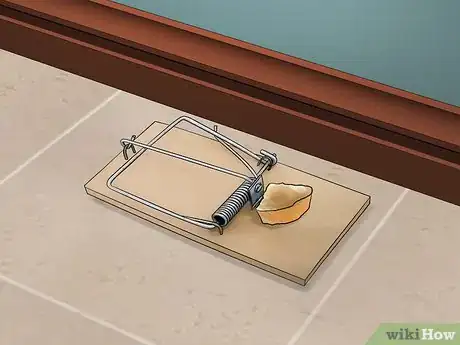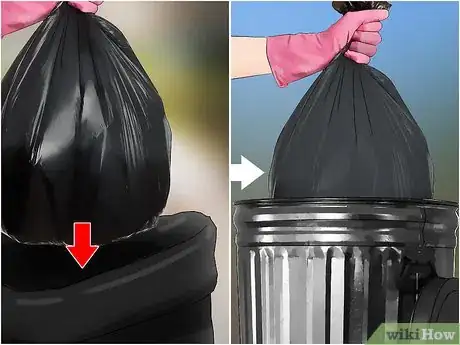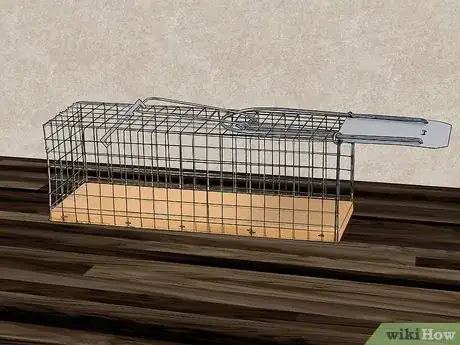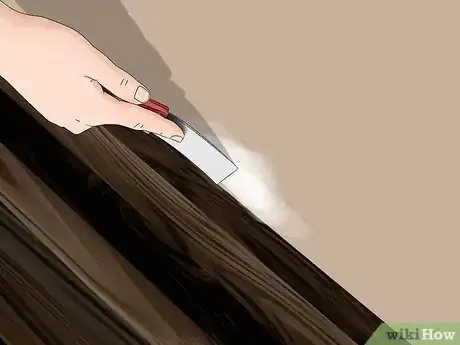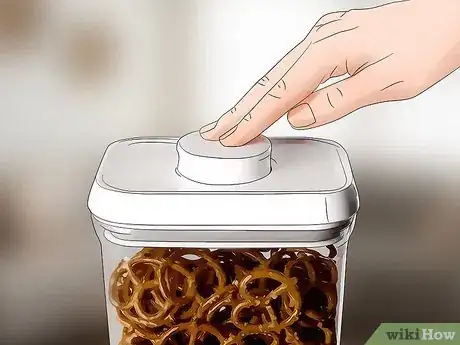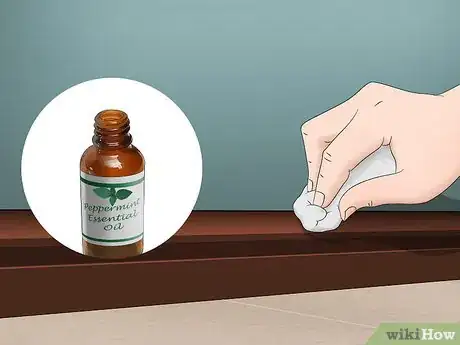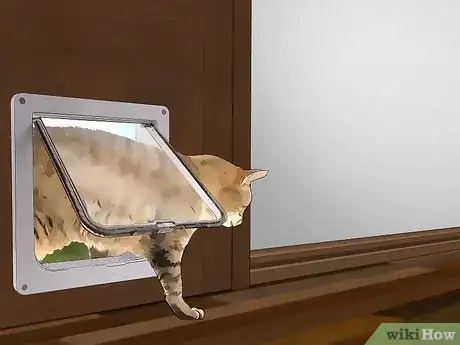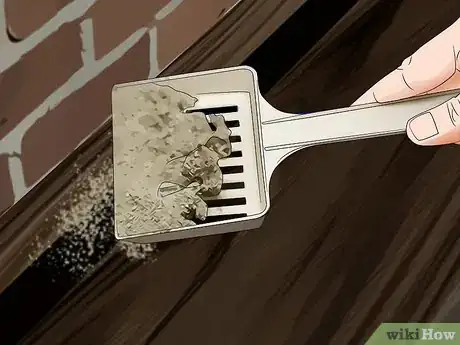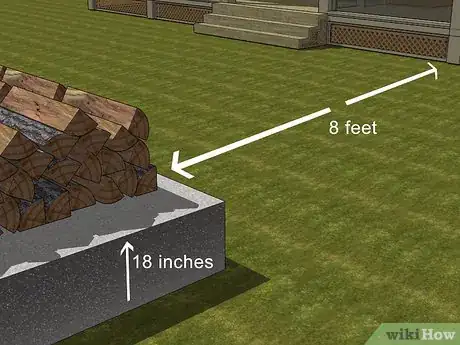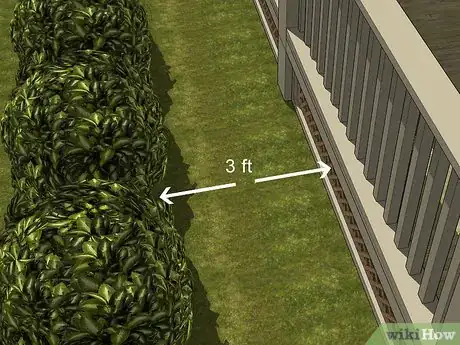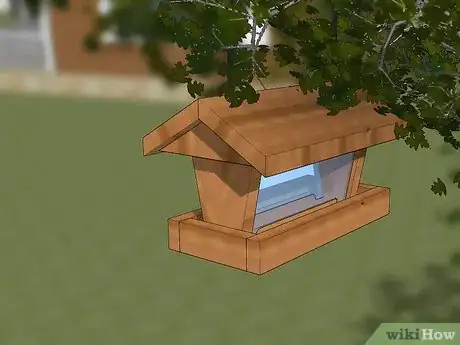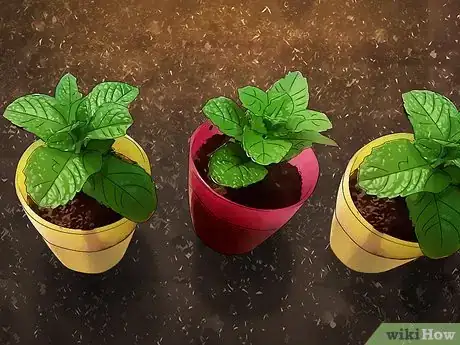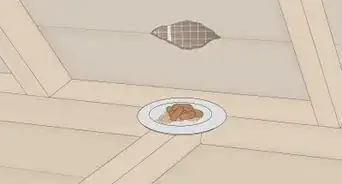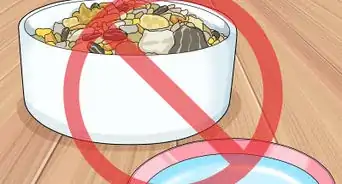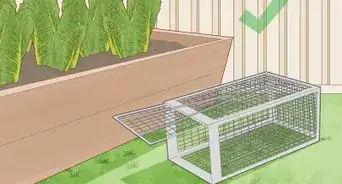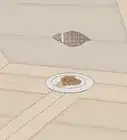This article was co-authored by Hussam Bin Break. Hussam Bin Break is a Certified Commercial Pesticide Applicator and Operations Manager. He and his brother Hussam co-founded Diagno Pest Control in the greater Philadelphia area in 2018, and have since expanded their services to include the New Jersey market. Diagno Pest Control has received Home Advisor's Top Rated and Elite Service Badges for quality of work and customer service.
wikiHow marks an article as reader-approved once it receives enough positive feedback. In this case, 81% of readers who voted found the article helpful, earning it our reader-approved status.
This article has been viewed 601,401 times.
Mice, rats, squirrels, and chipmunks are among the rodents that most commonly become a nuisance in homes, garages, and yards. To get rid of rodents when they're indoors, seal off access to your home to prevent more from coming in, then set traps and spread natural repellents where the pests travel. To get rid of rodents when they're outdoors, minimize sources of shelter and food, then spray repellents around your garden to discourage the pests from visiting. The process may take time and perseverance, but is safer and more humane than using chemical poisons.
Steps
Removing Rodents That Are Already in Your Home
-
1Kill rodents quickly with snap-style traps. This style of trap is readily available at hardware stores and home-supply stores. You can bait each trap with a small piece of cheese or a dab of peanut butter. Then, set the trap and place it near a hole or crack that you suspect the rodents use to enter your house, or in an area where you’ve seen rodent droppings.[1]
- Snap-style traps come in different sizes for mice and rats. Rat traps are about 3 times the size of mice traps.
- Although these traps do kill the rodent, they do so painlessly, unlike killing a rodent with less humane methods like poison.
-
2Double-bag dead rodents and throw them in a trash can. Use gloves to pick up the dead rodent. Rodents can carry diseases, so never touch them with your bare skin. Then, drop the rodent into a sealable plastic bag. Seal it, and place the bagged rodent into a second sealable bag. Seal the second bag and place the bagged rodent in the garbage.[2]
- Once you’ve removed your gloves, wash your hands with soap in case any germs got through the gloves.
Advertisement -
3Catch the rodents in live traps to avoid killing them. Live traps are a more humane option, because they allow the rodent to live. Bait the live trap as you would a snap-style trap, and set it in an area where you’ve seen rodent droppings. You can purchase live traps at most hardware stores or at large home-supply stores.[3]
- Once you have a rodent in your trap, drive the animal at least 1 mile (1.6 km) from your home before releasing it.
- To release the rodent, set the cage in a meadow or field and open the trapdoor. Stand away from the cage until the rodent walks out. Then, collect the cage and return to your vehicle.
Keeping Rodents out of Your Home
-
1Seal up holes and cracks in your home where rodents may enter. Check around your foundation, windows, and door frames for small holes, cracks, or improper seals. Be sure to seal any holes that have rodent poop in front of them, as that’s a sure sign that rodents use those holes as entrances to your house. Use caulk, putty or weather stripping to fill any access areas you find.[4]
- Mice can get through small holes, so blocking them out completely may not be possible. However, making it more difficult to get in may be enough to discourage rodents.
-
2Keep all of your food in sealed, airtight containers or bags. Hard plastic or glass containers are best, since mice and rats can gnaw through softer materials. Sealing all of your food will prevent the rodents from being able to smell—or eat—your food. Once rodents figure out that they won’t be able to get a free meal when they enter your home, they’ll lose interest and leave.[5]
- To prevent rodents from smelling food from your home at all, run the dishwasher daily, and don’t leave dirty dishes sitting in the sink overnight.
-
3Discourage rodents from entering your home with off-putting smells. These aromas will make your home less attractive to rodents and discourage them from living inside of your house. For example, you can rub peppermint oil on floorboards and other areas where rodents travel.[6] You can also scatter fresh or dried mint leaves, as both the oil and leaves repel rodents.
- Use mothballs to keep mice out of hard-to-reach areas of your home. Put 4 or 5 mothballs in an open container and leave them in the corners of the basement, attic, and other areas of your home where rodents are a problem.
- While mint smells pleasant to humans, rodents find the smell off-putting and will avoid areas that smell strongly of mint.
-
4Adopt a pet cat to kill and scare off rodents. Cats are natural predators, and their instinct will drive them to chase and kill rats. Even if your cat is not a great mouser, the smell of the cat's presence in the home should be enough to deter rodents. Give the adult cat a few weeks to settle in to its new home and rodent-hunting routine before you expect to see significant results.[7]
- Keep in mind that adopting a cat is a serious responsibility. If you’re not ready to own an animal, try borrowing a friend’s cat for 1-2 weeks.
-
5Sprinkle used cat litter in areas where rodents are entering your home. If rodents smell cat urine, they’ll assume that a cat is nearby. So, if you don’t have a cat, get some used cat litter from someone who does own a cat. Put the urine-soaked cat litter out in the basement or attic, in areas where you suspect the rodents are living.[8] Leave the litter out for about a week to give it adequate time to drive away rodents. Then dispose of the litter.
- If you’d rather not sprinkle urine-filled litter on the ground, try filling 3–4 plastic trays with used litter and setting these in rodent-infested areas of your house.
Getting Rid of Rodents Outdoors
-
1Stack firewood at least 18 inches (46 cm) off of the ground. Keep the stacked wood at least 8 feet (2.4 m) away from your house. Rodents often make their homes in woodpiles, so this will help keep them out of the wood and away from your house. This will help create an environment that does not encourage rodents to make a home in your yard.[9]
- You can stack the wood on a raised metal grate. These can be purchased at home-supply stores or hardware stores.
-
2Plant bushes and large shrubs 3 feet (0.91 m) away from your house. In many regions, it’s common for rats and mice to take shelter—or even permanently live—in thick brush, including manicured bushes. By keeping bushes a safe distance away from your house, you’ll make it harder for rodents to approach your home and sneak indoors unnoticed.[10]
- If shrubbery branches get too close to your home, use a pair of garden shears to trim them back to the distance of 3 feet (0.91 m).
-
3Place bird feeders on poles where the seed is not accessible to rodents. If you have a dish of birdfeed on the ground, rodents will be drawn to the area, hoping to eat the food. So, elevate your birdfeeder in order to deter the rodents. You can purchase many designs of birdfeeder which elevate the feeder on a vertical pole about 5 feet (1.5 m) tall.[11]
- Or, invest in a hanging birdfeeder, which you can hang off of an outdoor plant holder or a relatively low tree branch.
-
4Keep all garbage inside trashcans with securely closing lids. If your garbage bags are not inside of securely-fastened trashcans, rodents will be drawn to the garbage. They may even follow the garbage smell back inside of your home. If you don’t have a good, sealable trashcan, you can purchase one at a local hardware store.[12]
- It goes without saying that you should keep trash picked up and off of your lawn.
-
5Plant mint to keep rodents out of your garden and away from plants. If rodents believe that your garden is a source of delicious food, they’ll be more likely to invade your yard and potentially make their way into your home. To keep rats and mice out of your vegetable, fruit, or flower garden, try planting mint around the perimeter to create a barrier that rodents won't cross.[13]
- Planting mint around the perimeter of your garden will also prevent rodents from eating any of the vegetables or fruits in your garden.
Expert Q&A
-
QuestionHow do I get rid of mice fast?
 Hussam Bin BreakHussam Bin Break is a Certified Commercial Pesticide Applicator and Operations Manager. He and his brother Hussam co-founded Diagno Pest Control in the greater Philadelphia area in 2018, and have since expanded their services to include the New Jersey market. Diagno Pest Control has received Home Advisor's Top Rated and Elite Service Badges for quality of work and customer service.
Hussam Bin BreakHussam Bin Break is a Certified Commercial Pesticide Applicator and Operations Manager. He and his brother Hussam co-founded Diagno Pest Control in the greater Philadelphia area in 2018, and have since expanded their services to include the New Jersey market. Diagno Pest Control has received Home Advisor's Top Rated and Elite Service Badges for quality of work and customer service.
Pest Control Professional Walk throughout your house, and seal up any openings or gaps that you find. Then, you can use traps as a secondary tool to catch any mice that are sealed inside.
Walk throughout your house, and seal up any openings or gaps that you find. Then, you can use traps as a secondary tool to catch any mice that are sealed inside.
References
- ↑ https://www.kingcounty.gov/depts/health/environmental-health/animals/rat-prevention.aspx
- ↑ https://www.kingcounty.gov/depts/health/environmental-health/animals/rat-prevention.aspx
- ↑ http://how-to-get-rid-of-mice.com/natural-home-remedies/
- ↑ http://how-to-get-rid-of-mice.com/natural-home-remedies/
- ↑ https://housewifehowtos.com/clean/get-rid-mice-naturally/
- ↑ http://how-to-get-rid-of-mice.com/natural-home-remedies/
- ↑ http://how-to-get-rid-of-mice.com/natural-home-remedies/
- ↑ http://how-to-get-rid-of-mice.com/natural-home-remedies/
- ↑ https://www.kingcounty.gov/depts/health/environmental-health/animals/rat-prevention.aspx
- ↑ https://www.kingcounty.gov/depts/health/environmental-health/animals/rat-prevention.aspx
- ↑ https://www.kingcounty.gov/depts/health/environmental-health/animals/rat-prevention.aspx
- ↑ https://www.kingcounty.gov/depts/health/environmental-health/animals/rat-prevention.aspx
- ↑ https://housewifehowtos.com/clean/get-rid-mice-naturally/
About This Article
To get rid of rodents naturally, try discouraging them from entering your home with off-putting smells. For example, place an open container of mothballs in the corners of the rooms where rodents are a problem. Alternatively, rub peppermint oil on floorboards, door frames, and other areas where they like to travel. Then, seal any holes and cracks along those areas with caulk, putty, or weatherstripping. Additionally, keep your food in sealed, airtight containers made of glass or hard plastic to prevent the rodents from smelling or eating your food. For more advice, including how to keep rodents away from your yard, keep reading.
